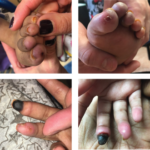Rheumatologists can do better at helping systemic lupus erythematosus patients from racial and ethnic minority groups adhere to their lupus medication regimens, according to a paper published in Arthritis Care & Research. Researchers from Duke University examined medication adherence barriers from the perspectives of healthcare providers and patients. Their findings suggest more attention should be…









